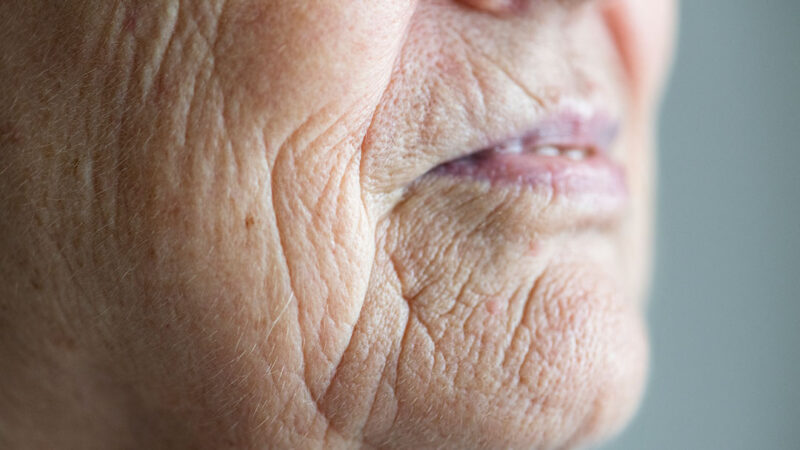In recent years, the orthodontic sector has been growing rapidly due to success in B2C marketing and companies like Invisalign reaching the consumer, but there has also been a lack of knowledge sharing among general dental practitioners and specialists.
General dentists require mentorship and guidance from orthodontists to feel confident in providing orthodontic treatment to their patients, ultimately improving the quality of care in the community.
Dr Geoffrey Hall’s passion for orthodontics has led him to become an international lecturer and form the OrthoED Institute to educate others. Dr. Geoffrey Hall emphasises the importance of continuous learning in the field of orthodontics, highlighting his own journey of pursuing orthodontic training at the University of Pennsylvania and ongoing commitment to staying updated in the field.
Dr Halls says, “Specialists should mentor their colleagues in Orthodontics, including general dentists, to help them gain confidence and provide better orthodontic care to their patients, especially in areas where specialists are not readily available.”
Dr Hall sees general dentists being able to perform up to 70% of orthodontic treatments, highlighting the need for them to have the knowledge and skills to meet patient demand. This is a significant opportunity when considering the majority of the consumer public trust their dental professional.
In this interview with Australian Health Journal, Dr Hall talks about his passion for teaching having started various study clubs to improve knowledge in orthodontics and general dentistry.
Dr Hall talks about imparting knowledge and educating peers. He sees the value of continuous learning and sharing information within the orthodontic community.
Based on this philosophy and having commenced 5 years ago, the OrthoED Institute offers both face-to-face and live-streamed orthodontic training programs, providing mentoring, support, and hands-on experience to participants regardless of their location or circumstances.
The OrthoED Institute aims to teach general dentists sound orthodontic principles to give them the knowledge and confidence to treat patients with conventional orthodontics, including fixed appliances, early treatment, and aligner therapy.
To illustrate the success in the sector, the OrthoED Institute received the Australian Dental Industry Award, or ADIA, for the best emerging manufacturer or service provider in the dental industry. The recognition continues to motivate Dr Hall to improve the Institute’s courses and services for dentists in Australia and New Zealand.
You Might also like
-
HIGHLIGHTS Consumers and communities as agents of health care change and improvement
Policymakers, health administrators and clinicians must learn and embrace new ways to harness the transformative role consumers, community members and carers can play. Conversely, consumers and communities need support, capability and capacity to engage as equals in policy, research, program and service design. This is necessary if are to be less technocratic and realise the vision where all members of society can live the best life possible.
-
Prioritising Oral Health in Aged Care and Disability Support
Leonie Short is a Dental Practitioner and Dental Therapist. She started working as a dental therapist in Rural NSW and then moved into being an academic and researcher. Through her career, Leonie has worked at 6 universities across New South Wales and Queensland, and remaining community focused.
Leonie’s mission is to have improved oral health experiences and outcomes, however she recognises, the health system really needs to work hard to make it happen and for people to understand why it needs to be a priority.
-
Continuity of Care under COVID-19
Series 3, Episode 1
Under the COVID-19 pandemic, the Australian Healthcare system has handled the public health crisis by monitoring and responding to challenges in supply chains, testing & tracing of new infections and stock piling of essential equipment.
The public has largely responded by practising social distancing, understanding how hand hygiene can spread contagion and recently installing the COVIDSafe mobile application. Public health messaging has been largely effective and literacy improve, to combat the dangers of misinformation.
To open up access to medical advice during the pandemic, in March the Australian government issued MBS item codes for telehealth consultations, for advanced practice nurses as well as GPs and other specialists.
According to AMA President Dr Tony Bartone, as of mid-May 2020, around 10 million Medicare-funded telehealth services have been provided, either over the phone or via video, a significant majority of which have been provided by GPs and other specialists since the Medicare telehealth items were introduced in March.
However in recent months, the health system has mounting concerns on:
- a reduction in general practice visits for testing, investigation or immunisation
- lower rates of elective procedures resuming since being halted
- reduction in laboratory testing
- reduction in treatments and diagnosis of chronic and acute conditions
- access to, and continuing to take medications
Those with pre-existing conditions have been urged to keep appointments and routine treatments to maintain their health.
Industry has taken action such as the newly formed Continuity of Care Collaboration (CCC). The 15 health organisations forming CCC are an Australian first national communication collaboration of Peak Bodies, Industry and Healthcare Organisations coming together to stress the importance for people to continue monitoring their health and maintaining their regular care.
This Australian Health Journal episode on the continuity of care was produced with commentary from the following health industry associations and organisations: APNA – Australian Primary Health Care Nurses Association, RACGP, Medical Technology Association of Australia (MTAA), West Cessnock Medical Practice, Consumers Health Forum of Australia, Medicines Australia
Post Views:
1,713



